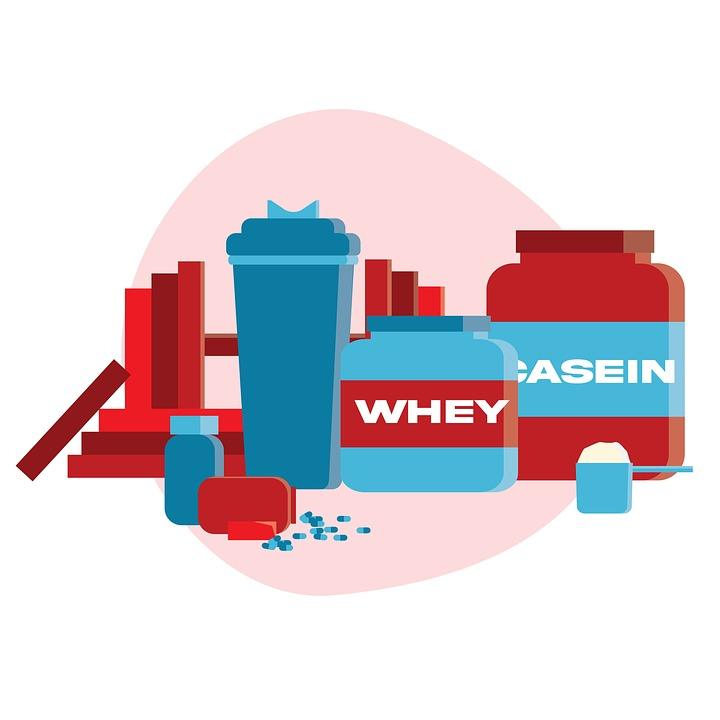Achieving a perfectly balanced diet isn’t just a goal; it’s a journey that transforms your life. Imagine waking up each day with energy flowing through your veins, your mind sharp, and your mood uplifted. That’s the power of balance on your plate.
In the bustling rhythm of life, it’s easy to overlook what we eat. But understanding how to nourish your body is essential—not just for weight management, but for overall vitality and longevity. A balanced diet fuels your body, supports your immune system, and keeps you feeling your best.
Contents
What is a Perfectly Balanced Diet?
A perfectly balanced diet includes a variety of foods in the right proportions. It’s not about restriction; it’s about inclusion. You want to ensure you’re getting the right mix of carbohydrates, proteins, fats, vitamins, and minerals.
Why does this matter? Because what you eat directly impacts your health, mood, and energy levels. A balanced diet helps you maintain a healthy weight, reduces your risk of chronic diseases, and can even enhance your mental clarity. Let’s dive into the secrets that will help you master this art!
1. Embrace Variety
Your body craves a spectrum of nutrients, and the best way to provide them is through a colorful variety of foods. No single food can supply all the nutrients you need.
- Fruits and Vegetables: Aim for a rainbow. Each color represents different vitamins and minerals.
- Whole Grains: Switch from refined grains to whole grains. Brown rice, quinoa, and whole wheat bread are your friends.
- Proteins: Incorporate lean meats, fish, legumes, and nuts. Each has unique benefits.
Variety not only enriches your nutrient intake but also keeps meals exciting.
2. Know Your Portions
Portion control doesn’t mean deprivation. It’s about understanding serving sizes and listening to your body.
- Plate Method: Fill half your plate with veggies, a quarter with protein, and a quarter with whole grains.
- Mindful Eating: Slow down. Savor each bite. This practice helps you recognize when you’re full.
Learning to manage portions can prevent overeating, making it easier to maintain a healthy weight.
3. Balance Macronutrients
A perfectly balanced diet requires a thoughtful mix of macronutrients: carbohydrates, proteins, and fats. Each plays a vital role in your health.
- Carbohydrates: Choose whole grains and fiber-rich fruits and veggies. They provide energy and help with digestion.
- Proteins: Essential for growth and repair, include a variety of sources. Think beans, fish, and lean meats.
- Fats: Don’t shy away from healthy fats. Avocados, nuts, and olive oil support heart health.
Striking the right balance among these macronutrients is key to feeling satisfied and energized.
4. Hydration is Key
Don’t underestimate the power of water. Staying hydrated is crucial for every function in your body—from digestion to cognitive performance.
- Daily Intake: Aim for at least eight glasses, but listen to your body. Thirst is a good indicator.
- Hydrating Foods: Include fruits and veggies with high water content, like cucumbers and watermelon.
Hydration impacts your mood and energy levels. Drink up!
5. Plan Your Meals
Spontaneity has its charm, but when it comes to nutrition, planning is your best friend. Meal prep can save you time and keep you on track.
- Weekly Planning: Dedicate a day to plan your meals for the week. Include a mix of all food groups.
- Batch Cooking: Prepare large quantities of grains or proteins and store them for easy access during the week.
Having a plan takes the guesswork out of eating and helps you resist the temptation of unhealthy choices.
6. Listen to Your Body
Your body is a remarkable communicator. Tune in to its needs.
- Hunger Cues: Are you really hungry? Sometimes we mistake thirst or boredom for hunger.
- Energy Levels: Notice how different foods make you feel. Choose those that energize you.
Understanding your body’s signals is a game changer in achieving dietary balance.
7. Limit Processed Foods
Processed foods often come packed with unhealthy fats, sugars, and preservatives. Aim to limit these in your diet.
- Read Labels: If you can’t pronounce it, think twice.
- Choose Whole Foods: Fresh, unprocessed foods are usually the healthiest. Think fruits, vegetables, lean meats, and whole grains.
By reducing processed foods, you can enhance your nutrient intake and improve your overall health.
8. Don’t Skip Meals
Skipping meals might seem like a quick fix, but it can lead to overeating later on. Regular meals help stabilize your metabolism.
- Eat Breakfast: Kickstart your day with a balanced meal. It sets the tone for your food choices.
- Healthy Snacks: Keep nutritious snacks on hand to avoid hunger pangs.
Regular eating keeps your energy steady and your cravings in check.
9. Focus on Mindful Eating
Eating isn’t just about nutrition; it’s also about enjoyment. Mindful eating is a practice that encourages you to savor each bite.
- Eliminate Distractions: Turn off screens and sit down at the table.
- Appreciate the Flavors: Take time to notice the textures, aromas, and tastes of your food.
Mindful eating can transform mealtime into a joyful experience and help you develop a healthier relationship with food.
10. Stay Educated
Nutrition science is always evolving. Staying informed helps you make the best choices for your health.
- Reputable Sources: Follow nutritionists, dietitians, and credible health organizations, such as the Academy of Nutrition and Dietetics and the World Health Organization.
- Continual Learning: Read books and articles that provide updated information on nutrition and health.
Knowledge is power. Equip yourself to make informed decisions that support your journey to a perfectly balanced diet.
Bottom Line
Achieving a perfectly balanced diet is not about perfection; it’s about progress. Embrace variety, listen to your body, and make informed choices. Your journey may take time, but every step counts.
So, what are you waiting for? Dive in! Start today by picking one or two secrets to implement in your life. Change is within your reach, and your body will thank you for it.
Frequently Asked Questions
What is a perfectly balanced diet?
A perfectly balanced diet includes a variety of foods in the right proportions, ensuring you get all the necessary nutrients.
How can I stay motivated to maintain a balanced diet?
Set realistic goals, celebrate small victories, and remind yourself of the benefits a balanced diet brings to your life.
Is it okay to indulge occasionally?
Absolutely! Balance includes enjoying your favorite treats in moderation. It’s about making thoughtful choices overall.
Embrace the journey to a perfectly balanced diet. You’ve got this!
Get Your FREE Natural Health Guide!
Subscribe now and receive our exclusive ebook packed with natural health tips, practical wellness advice, and easy lifestyle changes, delivered straight to your inbox.




